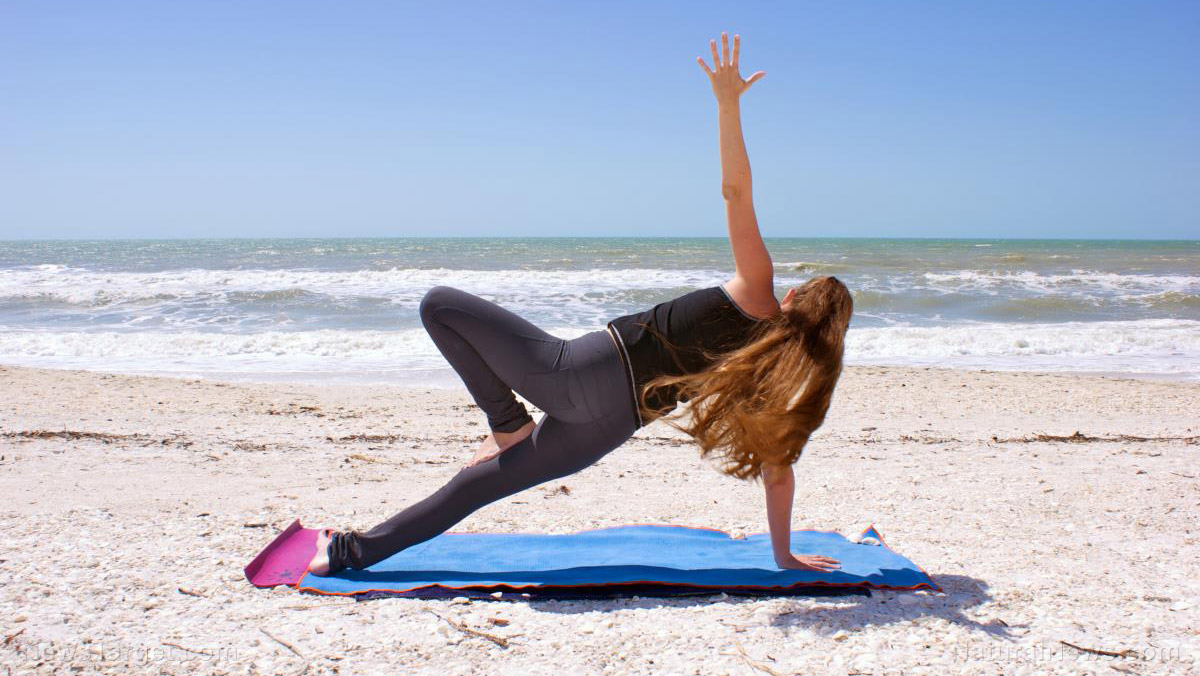 Parler
Parler Gab
Gab
- A study published in BMJ Evidence-Based Medicine found that yoga helps insomnia patients gain an average of 110 extra minutes of sleep per night – more than sleep hygiene advice or stretching – while also reducing time to fall asleep and nighttime awakenings.
- Chronic sleeplessness affects 4-22 percent of American adults, costing the economy $100 billion annually and increasing risks for depression, heart disease and Alzheimer's. Yet, mainstream solutions like sedatives and therapy are costly or carry dependency risks.
- Tai chi added 52 minutes of sleep per night, with benefits lasting up to two years, while walking or jogging significantly reduced daytime fatigue and insomnia severity.
- Unlike sleeping pills (risk of dependency) or cognitive behavioral therapy (expensive and hard to access), yoga and tai chi are low-cost, side-effect-free and address root causes like stress by activating the parasympathetic nervous system.
- The study challenges Western medicine's reliance on pharmaceuticals, advocating for yoga, Tai Chi and walking as first-line treatments. While more research is needed, these natural solutions offer broad health benefits beyond sleep improvement.
Yoga: The surprising sleep champion that beats drugs
Drug treatments for insomnia are not without their side effects, and CBT isn't always available due to the shortage of trained therapists, explain the researchers. Sleeping pills, though quick-acting, come with risks like dependency and next-day drowsiness. In contrast, exercise is low-cost, accessible and free of side effects. The study's lead author, Dr. Zhijun Bu, emphasized that these natural interventions align with the body's biology: "Exercise is nature's sleeping pill." Unlike pharmaceuticals, yoga and tai chi don't just mask symptoms—they address root causes like stress and nervous system dysregulation. Historically, Western medicine has dismissed Eastern practices as "alternative" rather than mainstream. But as research mounts, even skeptics must acknowledge their efficacy. The study's findings challenge the status quo, suggesting that public health guidelines should prioritize exercise as a first-line insomnia treatment. However, the research isn't flawless. Most trials were conducted in Asia, raising questions about applicability to Western populations. Additionally, self-reported sleep data (rather than lab measurements) introduces potential bias. Still, the consistency of results across multiple studies is compelling. In an era where Big Pharma profits from perpetual prescriptions, this study is a wake-up call. Yoga, tai chi and walking cost nothing, empower individuals and come with bonus benefits – improved mood, stronger immunity and reduced inflammation. For those tired of sleepless nights, the answer isn't in a pill bottle. It's in their own two feet, and perhaps a downward dog. Watch this video about yoga for happiness and health. This video is from the Progressive Voices Gary Null channel on Brighteon.com.More related stories:
Yoga found to be effective at reducing fatigue and sleep disturbances in women diagnosed with breast cancer. Yoga expert reveals life-changing health benefits of deep breathing, including improved focus, peaceful sleep and tension relief. The elderly sleep easier with Tai Chi. Sources include: StudyFinds.org EBM.BMJ.com News-Medical.net ABCNews.go.com Brighteon.comUnveiling the collagen connection: Morning habits backed by science for younger-looking skin
By Willow Tohi // Share
The silent crisis: How hearing loss and loneliness are eroding memory in older adults
By Ava Grace // Share
Finding STRENGTH in stress: HEAL your way through life’s challenges
By Lance D Johnson // Share
Post-meal movement: A natural pep talk for blood sugar management
By Willow Tohi // Share
“Natural Medicine, Optimal Wellness” offers a comprehensive guide to holistic health
By Kevin Hughes // Share
Governments continue to obscure COVID-19 vaccine data amid rising concerns over excess deaths
By patricklewis // Share
Tech giant Microsoft backs EXTINCTION with its support of carbon capture programs
By ramontomeydw // Share
Germany to resume arms exports to Israel despite repeated ceasefire violations
By isabelle // Share










